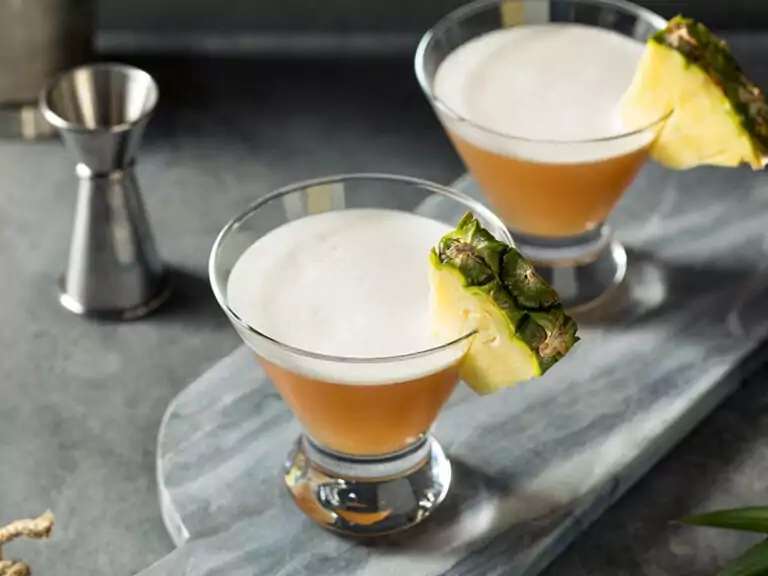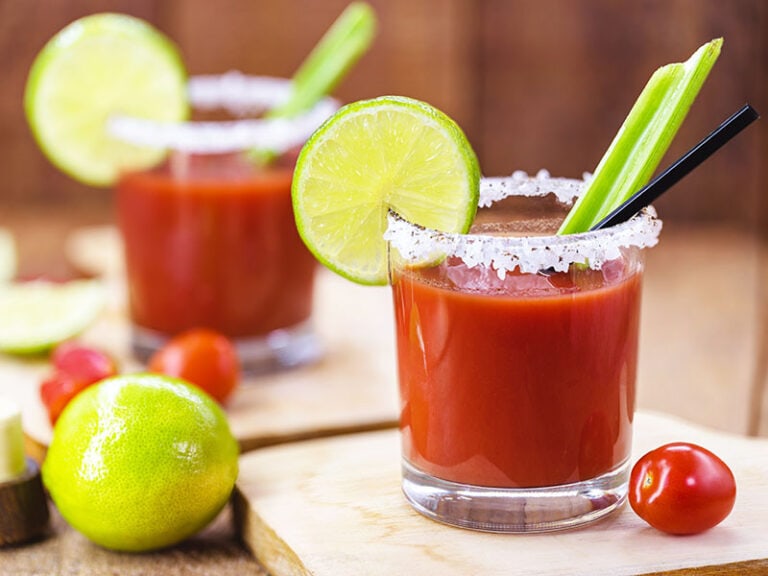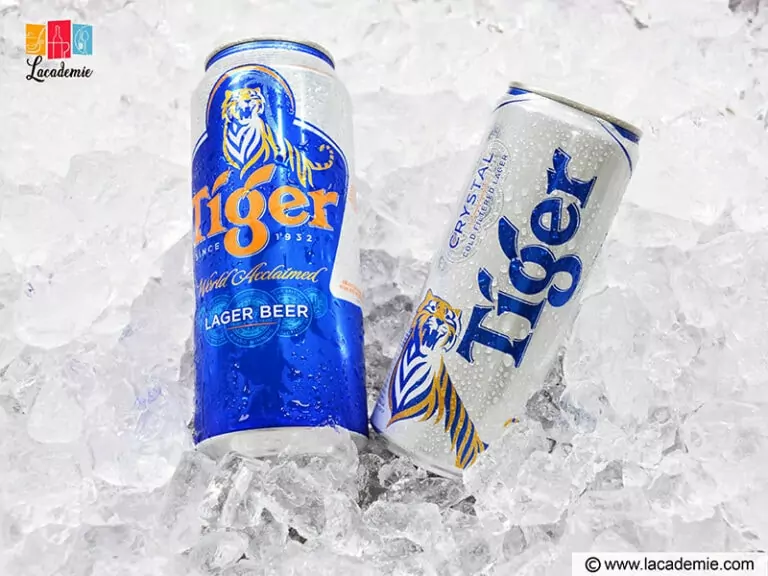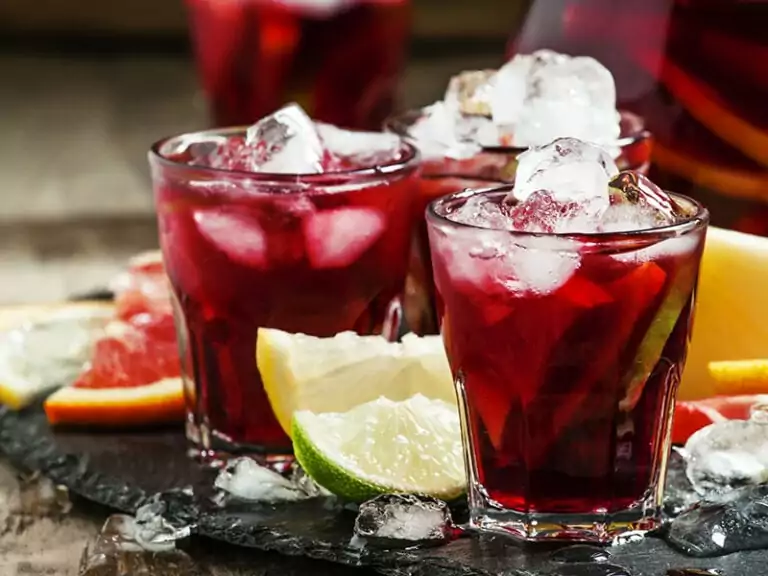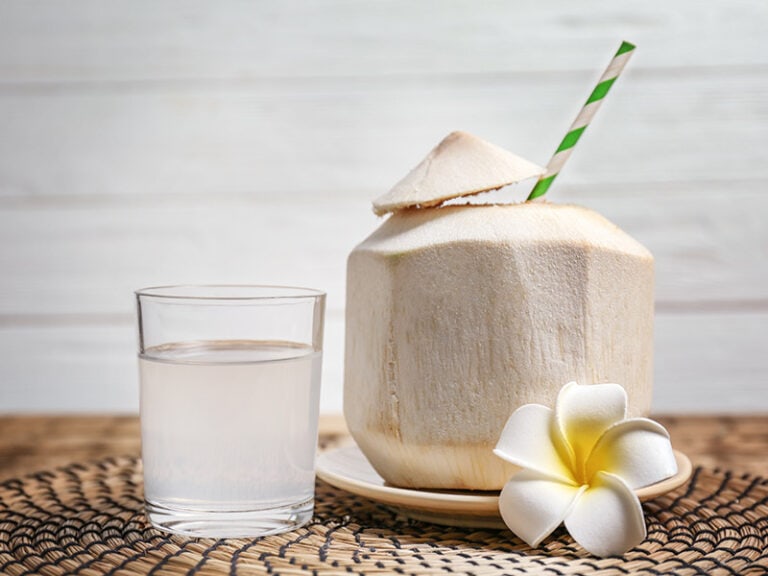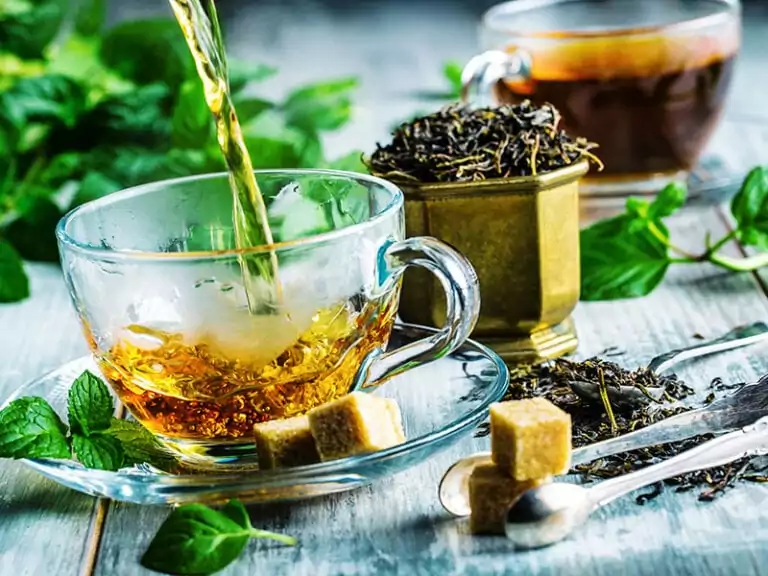How long does coconut water last? This liquid is a god-sent drink to the human body, so it’s comprehensible if you want to buy tons of coconut water packs as a backup. However, the uncertainty about its shelf life is still your worry.
Understand your struggles; I will discuss this issue thoroughly in this article. Apart from detailed information about coconut water’s lifespan, you’ll also learn how to store it and the first signs of rotten drink to eliminate it in time.
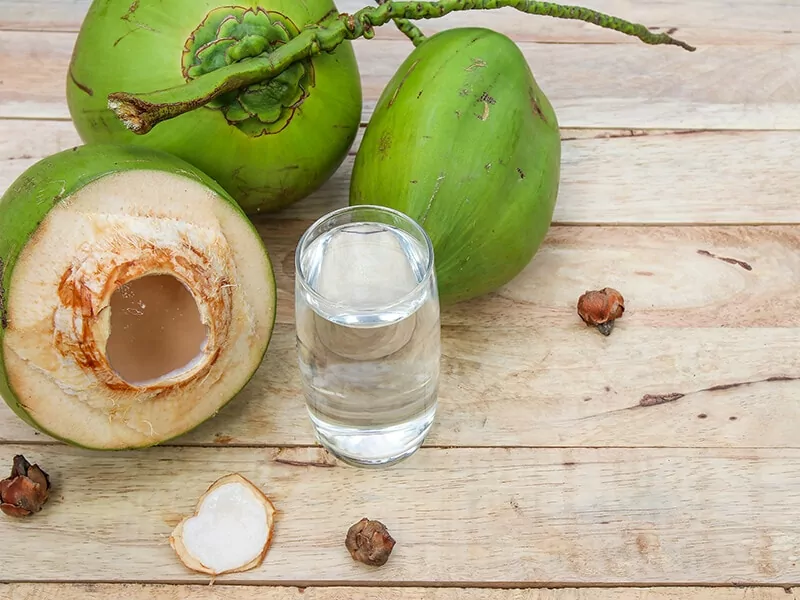
Coconut Water – A Gift From Mother Nature
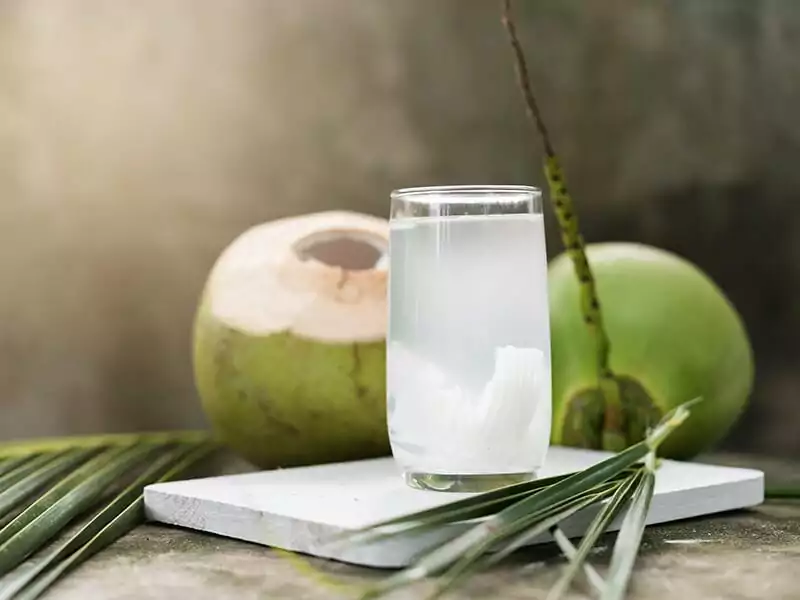
When the summer arrives, nothing will ease your thirst better than tropical juice, and coconut water is an excellent example. The freshness and sweetness of this drink are phenomenal.
Since there is a mistake, let’s get this straight: coconut water differs from coconut milk, a thicker liquid with a creamy white color. It’s a transparent fluid inside a coconut fruit. Its flavor is fresh and mildly sweet with a nutty hint but may vary depending on the locality or the climate.
For a fresh source of coconut water, it’s always best to get it from a raw fruit fresh off the palm free. In many tropical countries, this drink is also available at street vendors. However, Western customers can still get a shot at this tropical drink with the pre-packed ones at grocery stores.
This beverage brings undeniable benefits to your body, as it is a delicious source of nutrition. Science-based evidence has proved that it’s suitable for treating dehydration, high blood pressure, and heart health (1).
Check out how many benefits coconut water offers to your body if you drink it every day.
How Long Does Coconut Water Last?
Have you ever wondered if coconut can be expired or how long it will last? This section will solve all your doubts. Moreover, you’ll learn more about coconut water shelf life and signs of the spoiled drink to have an in-time intervention.
Can Coconut Water Expire?
In short, Yes. As with everything else, coconut will eventually expire and could upset your stomach if you accidentally drink the spoiled one. However, this product’s lifespan is variable since manufacturers only label the “use-by” or “best-by” date on the carton.
More specifically, further guidance by the FDA says that every commercial coconut water product must have the “best-by” date on the packaging. However, these date labels don’t indicate how long it’s safe to drink. Instead, they only time the “peak quality” of the item.
In other words, the best-by date only marks when the product’s freshness and taste start going downhill. Stored correctly, this tropical juice is still good to use for additional six to nine months past the given date if it shows no signs of damage or spoilage.
It’s also worth mentioning that while all commercial containers of coconut water will display this date, fresh juice from cracked coconut fruit won’t contain this detail.
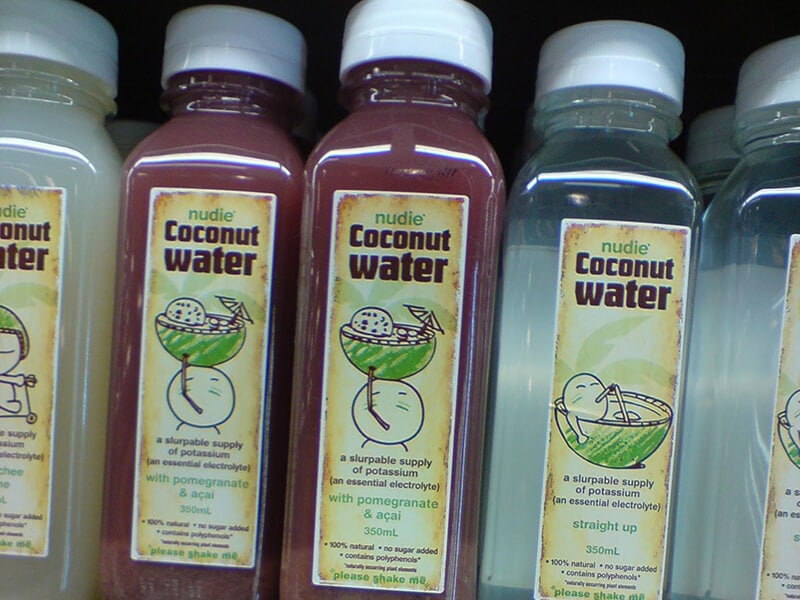
Processed coconut water will have a best-by-date label on its packaging.
Coconut Water Shelf Life
As I mentioned above, there is more than one way to consume coconut water’s consumption. Customers can buy coconut water fresh off the fruit or in processed packages. This means that the lifespan of these two varieties will also be different.
Processed Coconut Water
Not all processed products are the same as bottled water with an indefinite shelf life. Commercially-sold coconut water has a shorter life. Yet, since the juice has gone through special processes to become shelf-stable, it’ll obviously last longer than the fresh one.
Generally, bottled coconut water is drinkable within 12 months of production, whether at room temperature or in the refrigerator. However, the opened bottles only last three to five days in refrigerated conditions and several hours at room temperature.
Noticeably, many brands say no to pasteurizing their products to maintain their original coconut properties. That is good for the flavor, but the downside is that their coconut water will downgrade after exposure to oxygen. Therefore, they should always stay refrigerated.
For longer storage, consider freezing your coconut water since frozen juice lasts about two months. However, the catch here is a loss of sweetness and a plain flavor after defrosting, so think twice before choosing this method.
In a nutshell, the expiration date is not an expression of safety. Your juice can go rancid ahead of time due to improper storage or last longer than you expected. Therefore, it’s best to give a regular check on your products to ensure they are spoiled or not.
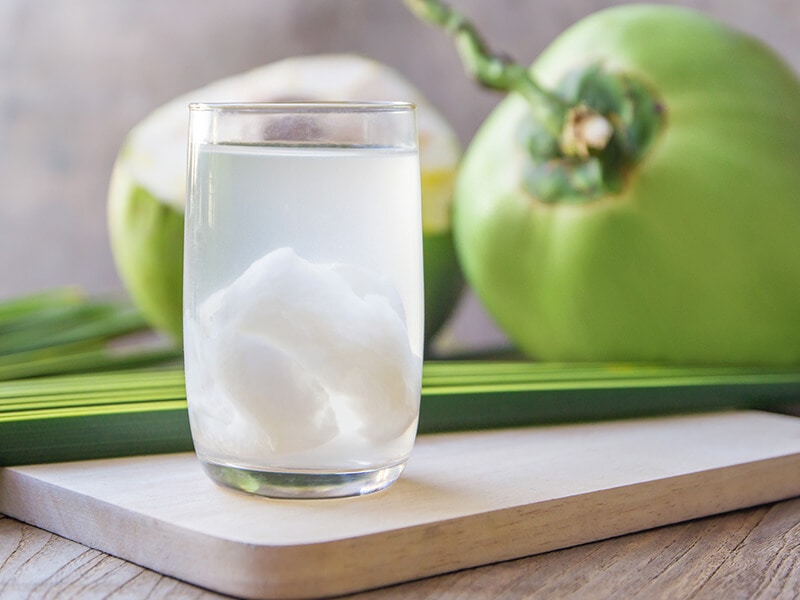
Fresh Coconut Water
Unlike commercialized coconut water, fresh coconut water from crack-opened fruits won’t keep it fresh for long since it has zero preservatives. This goodness is vulnerable to the environment, so it can last about one to two days after exposure to air.
If you don’t plan to use it at the time, the best move is to transfer the fresh coconut water to the refrigerator and avoid leaving it at room temperature for more than three to four hours.
After this period, the chances your beverage is still drinkable, but its quality will dramatically drop. Discarding it would be a better option. Besides, like processed coconut water, untreated ones can stay in the freezer for around two months.
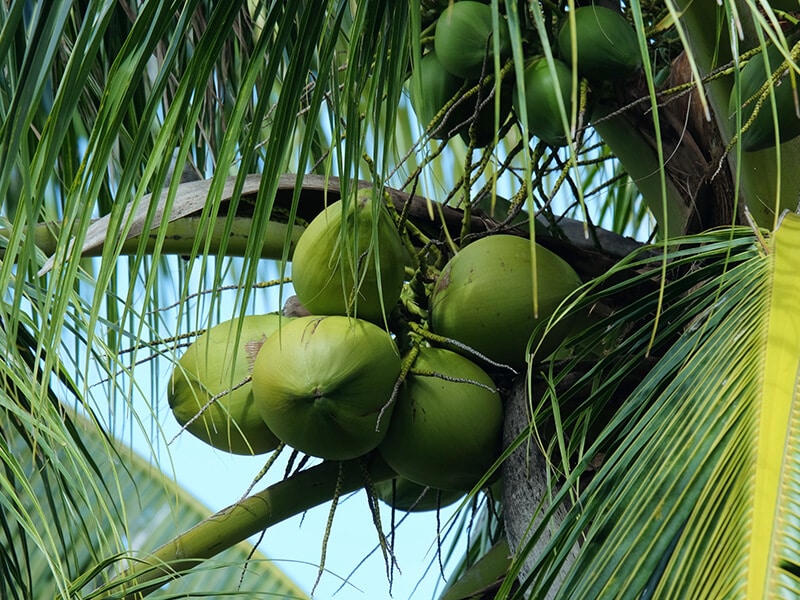
Signs Of Spoiled Coconut Water
For coconut water fans, there is a common situation that you would buy these delicious drinks in bulk and completely forget about them. That’s when you must check for signs of rottenness to get rid of the bad ones.
Smell
One easy way is to use your scent of smell; simply sniff your coconut water. Whether fresh or bottled, standard coconut water will deliver a sweet scent. If it has a strong smell or emits a strangely fermented odor, it’s a sign to discard the product.
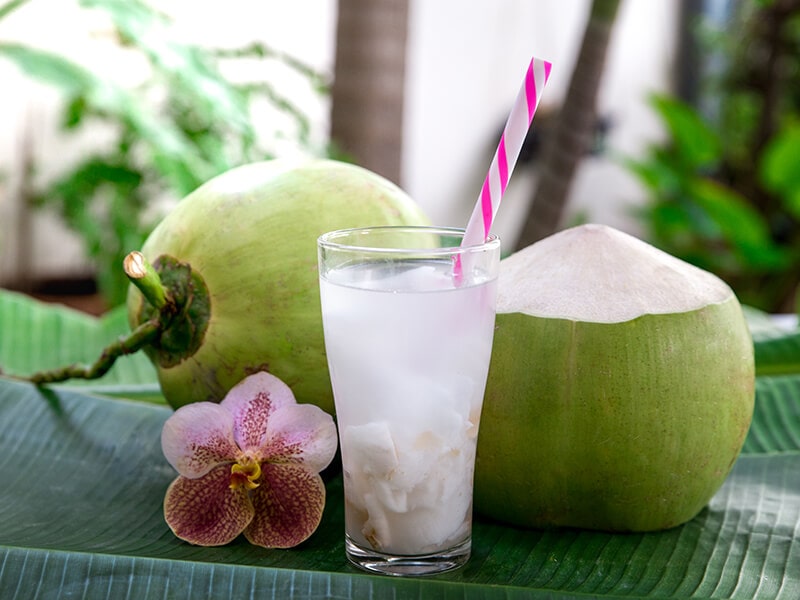
Color
Since the original stage of the liquid is transparent and opaque, any discoloration could hint at impurities and contamination. However, it’s worth noting that this beverage can turn pink and is still safe to drink, so don’t panic about seeing the liquid in this color.
The pink hue results from the oxidation of the enzyme polyphenol oxidase (PPO) over time. It’s a natural process so check other evidence to determine whether the drink has gone decaying or not.
However, with fresh coconut water, the fruit’s flesh is also a hint of this juice’s freshness. Coconut meat should always be white. As a result, if the flesh changes to pink, purple, or gray, it also means that your coconut water is not safe to consume anymore.
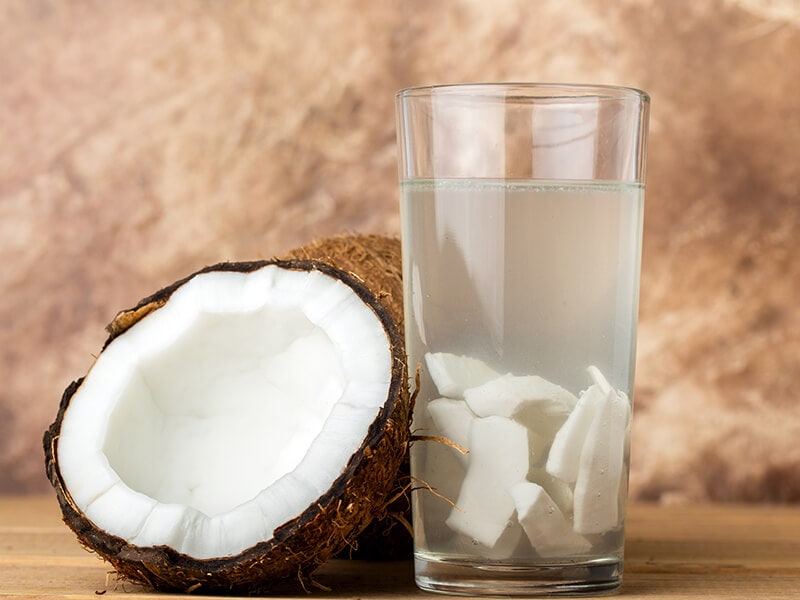
Consistency
Another vivid clue of bad coconut water is its consistency. It has a similar liquidly property as regular water. Therefore, if the coconut water possesses a thicker texture than normal, it’s not fresh for consumption anymore.
Carbonation
The carbonation process creates bubbles on the fluid surface. However, coconut juice is nothing like soda, so it should not have these air bubbles. Therefore, say goodbye to your coconut water when you see a foam layer on top of the liquid’s surface.
Overall Appearances
It’s likely that your coconut water has already gone bad before you even open it, but how can you know for sure? The overall appearance of the fruits or boxes can be a big clue.
For fresh coconut water, the main culprit can be bacteria that penetrate through eye-like holes on end stems. Therefore, if you have seen these dark holes like molds on the rind, test the drink’s quality carefully before drinking the juice inside.
Another concern is the packaging materials of bottled coconut water may contain toxic chemicals (2). Over time, the packaging may contaminate the water. Also, these cracks can pave the way for small insects to have a party with your deliciousness.
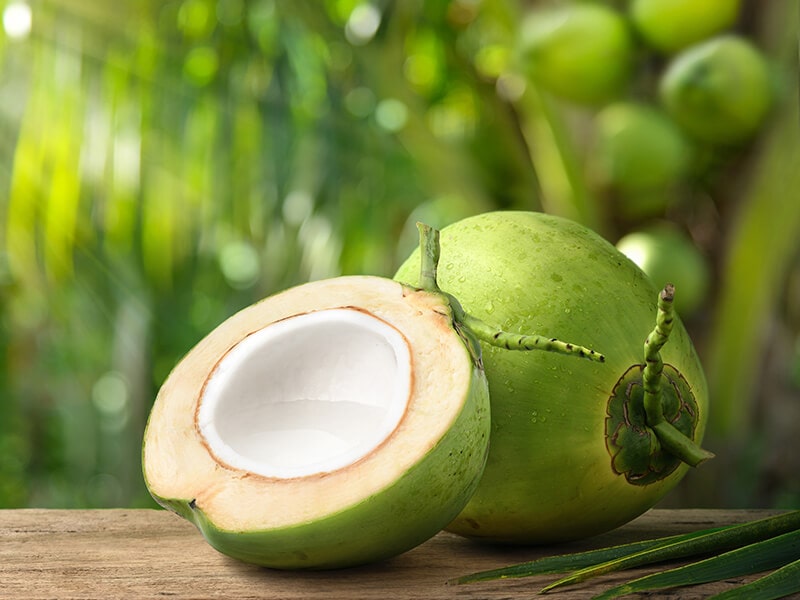
Flavor
If everything seems normal to your expired beverage, the next step is to give it a shot to test the taste. When the water turns sour or loses the signature coconut flavor, it’s a sure sign that you should toss it away instantly.
Proper Storages To Increase Coconut Water Shelf Life
Whether your coconut is fresh or packed, appropriate preservation is the only way to keep this deliciousness edible as long as possible. Follow the tutorial below, and you are good to go.
Fresh Coconut Water
Untreated coconut water comes from raw fruits. Without additives, it’s highly perishable. Therefore, if you can’t finish it within a few days, follow the instructions below for the most longevity.
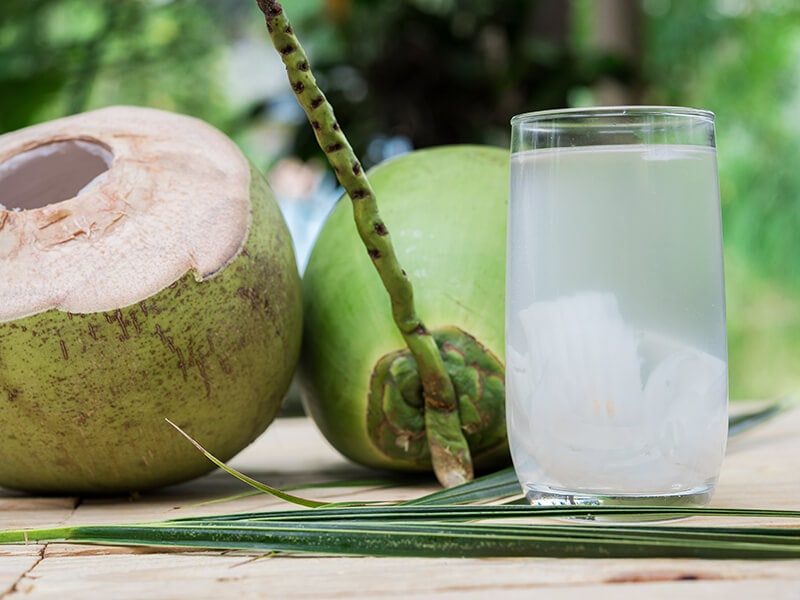
Step 1: Drain The Water
Place a fine mesh over a large bowl, and then line the sieve with cheesecloth. Next, hold the coconut upside down to drain out the water.
Step 2: Filter It
Strain the coconut water through the lined sieve to remove the tiny bits of the flesh or sentiment. After that, pour the strained liquid into a container or glass jar for further preservation.
Step 3: Store The Water In Cold Conditions
Don’t cover the container yet; put the coconut water in the freezer or let it chill at 39°F (approximately 4°C) for 30 minutes. Then, remove the container from the freezer and seal it tightly before transferring it to the refrigerator or freezer sections.
If you don’t know how to extract coconut water from its fruit, here is how you do it.
Processed Coconut Water
Storing commercially-sold coconut water is simpler since these products are already shelf-stable and have protective packaging. However, you still need to store them with precautions.
How To Properly Store Commercialized Coconut Water
The best storage method for packed coconut water follows the same preservation method it has at stores. Simply put, leave the bottles in the pantry if you found them on the grocery shelf, or let the carton stay in the refrigerator in case you pull it from the store’s refrigerated section.
Worries not, as the room temperature is safe enough for unopened packages because they have a long lifespan. Most ideally, store it in a cool and dry area, like a food pantry or kitchen cabinet. Avoid anywhere near extreme heat sources or direct sunlight.
Needless to say, for opened coconut water, it’s always better to store the leftover at cold temperatures to keep it fresh as long as possible.
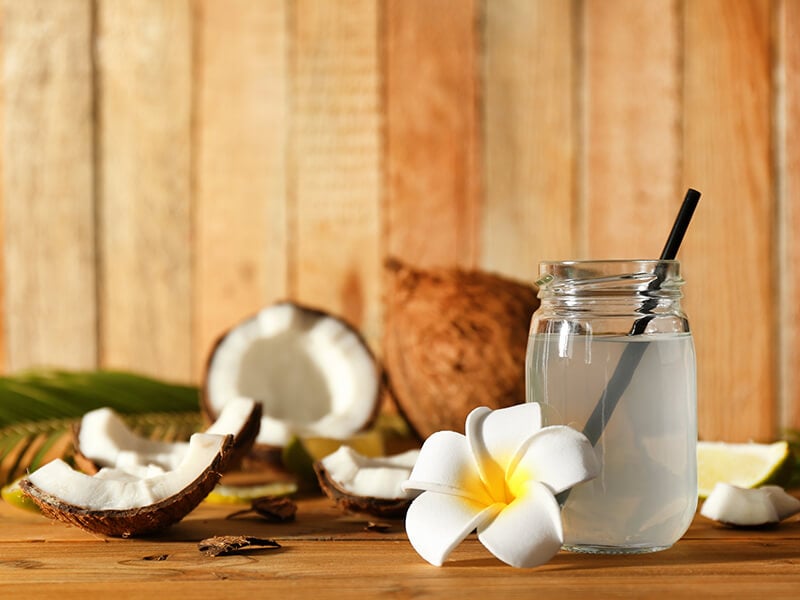
Freezing Processed Coconut Water
It’s not advisable to freeze the coconut water since refrigerated conditions are enough to maintain the product’s quality. Most importantly, the taste of frozen coconut water won’t be the same after thawing.
Generally, you don’t need to freeze unopened bottles of coconut water or whole fruits. However, this method is still an option to save the leftover juice for more extended consumption. Remember to leave space for expansion because the coconut water will expand as it freezes.
Ideally, divide the coconut water between all the molds in an ice cube tray. As such, you’ll have better control of the portion and won’t need to refreeze the leftover.
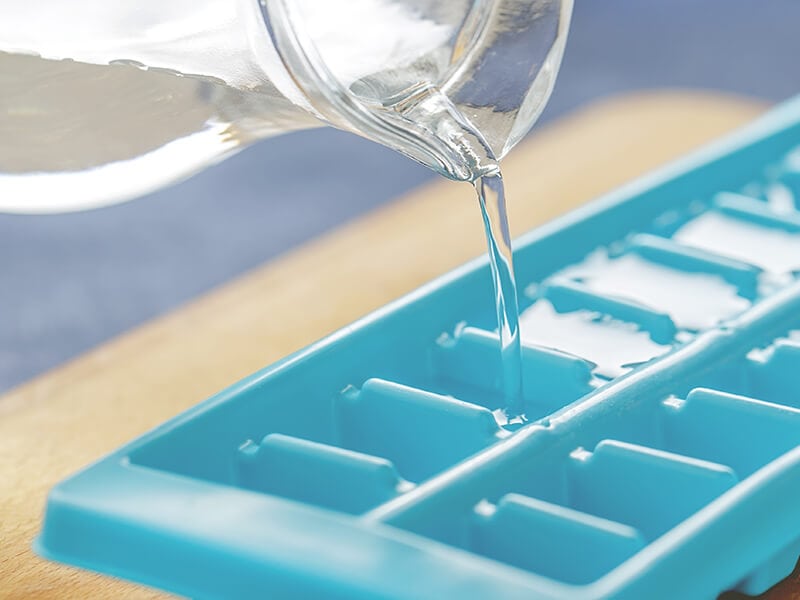
Methods That Prolong The Shelf Life Of Fresh Coconut Water
You already know that raw coconut water is delicate and tends to go rancid in a few hours at room temperature. Therefore, this drink needs intervention from special techniques to extend its shelf life.
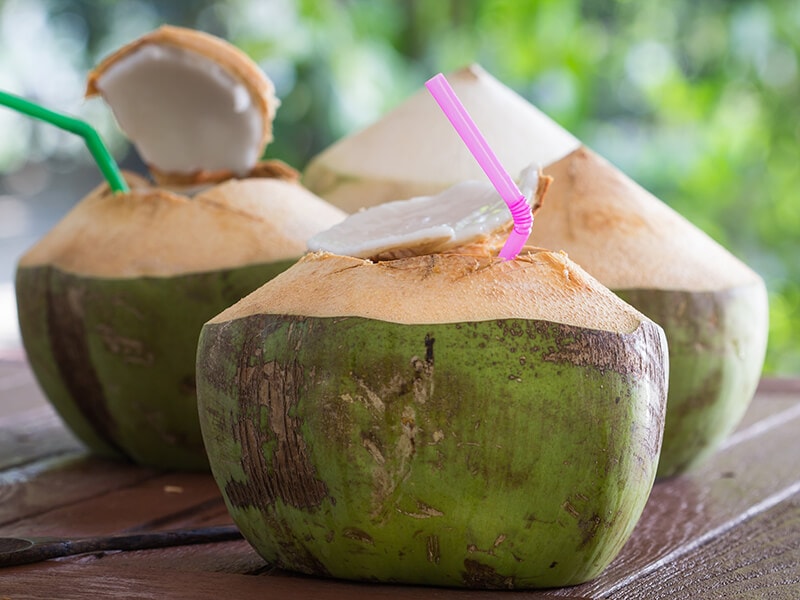
Ultra-High Temperature (UHT)
During the process, coconut water will experience a high temperature of around 266°F – 302°F (130°C -150°C) in about 2 to 45 seconds. The bacteria-free environment increases the shelf life of the coconut beverage to at least a year.
This high-heat treatment destroys most bacteria but maintains most of the nutrient content and natural flavor in the coconut liquid.
Cold Preservation
This technique is common among small to medium-sized agro-industries, where the fluid undergoes filtration to remove impurities. Following the filtration is bottling and storing the liquid at low temperatures. As such, fresh juice is good to use from ten days to three weeks.
Microfiltration
Microfiltration is a new approach to processing coconut water in the business. The selling points of this technique are that it helps reduce plastic usage in the packaging and improves the overall taste.
This multiple-step process includes a membrane separation technique to remove suspended particles and bacteria from the given liquid.
In less than a minute, this simple explanation will give you a better insight into microfiltration!
What Happens If You Drink Spoiled Coconut Water
Even though spoiled coconut water isn’t fatal, it does more harm than good to your body. Many people won’t show clear signs, but in worse cases, it can make you sick. Contact medical professionals immediately if you experience any symptoms like vomiting or nausea.
Far from its benefit in the good stage, coconut water will cause diarrhea when it becomes rotten. Accordingly, it can make you dehydrated at an accelerated rate. Therefore, you should take extra fluids after accidentally having a few sips of spoiled coconut water.
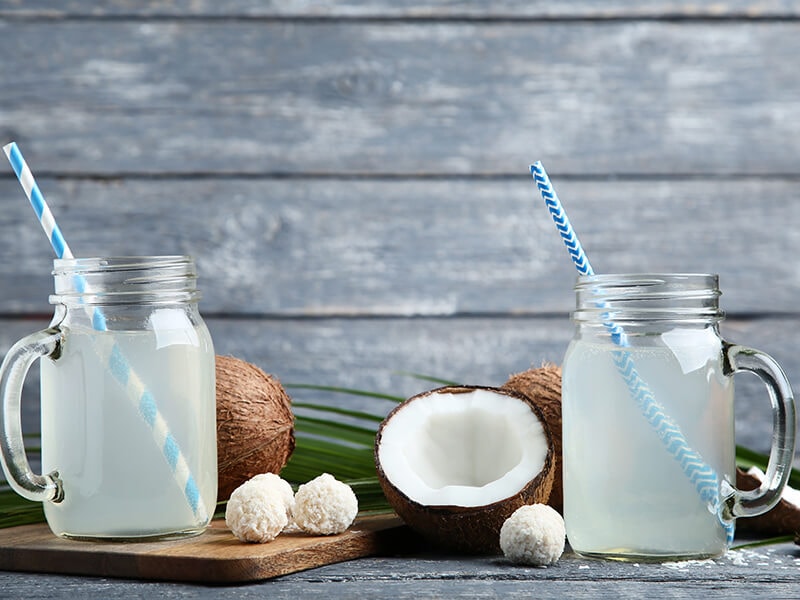
FAQs
Have you got all the information that you need? If your answer is no, below are some additional questions about this delicious drink. Who knows, they may be helpful for you someday.
Make The Most Of Your Coconut Water!
No matter where your coconut water is from, it’s undeniable that this drink is overflowing with health benefits and is a natural gift to humans. Store it correctly, and you can maximize its lifespan for more prolonged usage, whether for direct consumption or culinary uses.
Have you ever tried this goodness before? Give me your feedback in the comment section below. Also, please give this post a like and share if you think the information is interesting and valuable. Don’t forget to check other fantastic content on this website too!
References
- DiGiacinto, J. (2021) The health benefits of Coconut Water, Healthline. Healthline Media
- Food packaging is full of toxic chemicals – here’s how it could affect your health (2019) The Guardian. Guardian News and Media

